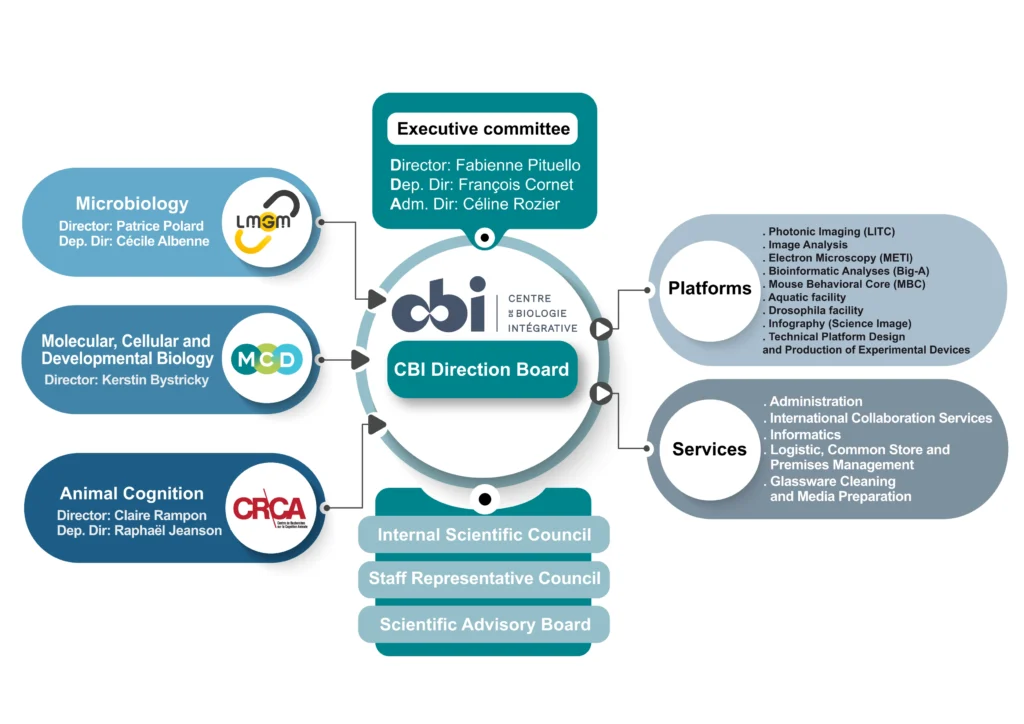To this end, the CBI provides its research teams with a cutting-edge environment thanks to its research support services, its infrastructure dedicated to its many model organisms, and its technological platforms that include and develop innovative equipment, particularly in live imaging and electron microscopy, image analysis, bioinformatics, and behavioral analysis. The teams develop multidisciplinary, multi-scale approaches from isolated molecules to whole organisms and animal societies, and use numerous model organisms, from bacteria to humans. This research is linked to societal issues such as health and well-being, the medicine of the future, and artificial intelligence, as defined by our supervisory authorities, the Occitanie region, and more broadly, Europe.
The CBI was created in 2016 as a Research Federation under the supervision of the French National Center for Scientific Research (CNRS) and the University of Toulouse (UT). Today, the CBI brings together more than 400 people, spread across its support services, platforms, and approximately 40 teams into three research units: Microbiology (LMGM), Molecular, Cellular, and Developmental Biology (MCD), and Animal Cognition (CRCA). Its teams, platforms, and services are composed of researchers, faculty, doctoral and postdoctoral students, and administrative and technical staff from the CNRS, as well as from the University and INSERM, making it one of the most important scientific research centers in France.
As a recognized training center, the CBI welcomes many students and interns every year. It contributes in particular to training through research for master’s students, doctoral students, and postdoctoral researchers. It offers a mentoring program to guide and support these young colleagues in achieving their professional goals. The CBI also plays a major role in teaching, from bachelor’s to master’s degrees, with nearly 50 professors and lecturers teaching in many fields at the University of Toulouse. The CBI teams are affiliated with the doctoral schools of Biology, Health, and Biotechnology (BSB), Ecological, Veterinary, Agronomic, and Bioengineering Sciences (SEVAB), and the University Research Schools (EUR) Cancer, Aging, and Rejuvenation (CARE) and University of Toulouse graduate school of Emerging Infectious Diseases (UNITEID).
The CBI benefits from a highly collaborative and innovative scientific environment thanks to its location on the main campus of the University of Toulouse, which offers cutting-edge training and laboratories in the fields of science, health, engineering, technology, and sports. Interdisciplinary approaches involving physics, mathematics, nanotechnology, computer science, and chemistry are thus encouraged and developed. The University of Toulouse also includes two university hospitals. The CBI is a member of the Biology and Biotechnology for Health network (sFR B2S), dedicated to the coordinated dissemination of knowledge and information between different research centers in the field of biology and health research.
